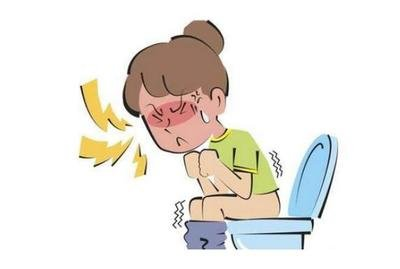Will Pelvic Inflammatory Disease Cause Constipation?
Pelvic inflammatory disease is a common disorder of the female reproductive system, while constipation belongs to the digestive system. There may not be any relationship between the two. However, some people with pelvic inflammatory disease find that they get constipated easily, so they want to know if pelvic inflammatory disease causes constipation.

Pelvic inflammatory disease usually does not directly cause constipation. But if it leads to pelvic abscess, it can cause local compression symptoms. Compression of the bladder can lead to frequent urination, painful urination, and urination difficulty; compression of the rectum can lead to frequent bowel movements and endless defecation, diarrhea, or constipation symptoms.
In addition, pelvic inflammatory disease may affect bowel function through some indirect factors, leading to constipation in some patients. The specific reasons may be as follows:
1. Inflammation Spreading: If pelvic inflammatory disease spreads to the nearby colon, rectum, and other parts of the intestine, it may stimulate the intestinal tract, resulting in weakened intestinal peristalsis, which in turn affects the smoothness of excretion and increases the risk of constipation.
2. Drug Treatment: Patients may take antibiotics and other drugs to treat pelvic inflammatory disease. Certain antibiotics may affect the intestinal flora, leading to intestinal dysfunction and, thus, constipation.
3. Physical Condition: Pelvic inflammatory disease may make patients feel weak, lack appetite, etc., resulting in an unbalanced diet and insufficient fiber intake, which will also increase the incidence of constipation.
The only way to completely solve the constipation problem caused by pelvic inflammatory disease is to seek timely medical treatment and actively treat the primary disease with antibiotics or traditional Chinese medicine. When pelvic inflammation is relieved, the constipation problem is naturally gone.
Antibiotic treatment can clear the pathogens, improve the signs and symptoms, and reduce the sequelae. However, since many antibiotic drugs are resistant, the symptoms will recur after stopping the drugs, so patients are recommended to use the natural medicine Fuyan Pill. Without any side effects on the patient's body, the Fuyan Pill can be useful for various conditions, eliminating inflammatory stimuli, relieving pain, and improving the patient's physical condition.
In addition to medical treatment, patients with pelvic inflammatory disease can also choose physical and surgical treatments according to their conditions and the guidance of their doctors.
1. Physical therapy: Physical therapy puts the instrument into the pelvic cavity and gives medicine to release heat energy. In the heat environment, the blood vessels of the tissues dilate, the blood flow accelerates, and the immune cell function becomes more active, which improves the body's immunity and the infection rate and inhibits bacterial reproduction reliably.
The toxins secreted by bacteria are destroyed under the action of physical heat energy, the formation of antibodies increases, local metabolism intensifies, and controlling a certain temperature can make the tissue dry, reduce exudation, and prevent the further spread of inflammation.
2. Surgical treatment: The scope and mode of surgery should depend on the patient's age, the extent of the lesion, the size of the encapsulation, and the patient's requirement for fertility. If the patient is relatively young and has fertility requirements, and the inflammation has caused the fallopian tubes and ovaries to form encapsulation and adhesion, thus affecting fertility, conservative surgical treatment should be considered, i.e., separating pelvic adhesions, relieving the obstruction of the fallopian tubes and removing as much as possible of the lesions, so as to achieve the goal of not affecting fertility.
So, how should women prevent pelvic inflammatory disease in daily life?
1. Keep their spirits relaxed and cheerful. Women should stabilize and regulate their emotions and keep their minds light.
2. Reasonable regulation of diet. Patients with pelvic inflammatory disease should pay attention to a reasonable diet. During the fever, patients should eat a light diet, choose easily digestible food, and avoid spicy food.
3. Develop good hygiene habits. Women should pay attention to their personal hygiene, especially during menstruation, to avoid infections. It is sufficient to clean the external genital area; do not wash the internal genitals, and avoid disrupting the body's natural barriers. During the menstrual period, change sanitary pads frequently, and refrain from sexual intercourse during menstruation and right after it is over.
You may also be interested in:
How to Prevent Acute Episodes of Chronic Pelvic Inflammatory Disease(PID)?
Can Pelvic Inflammatory Disease Cause Diarrhea?
Does Pelvic Inflammatory Disease Attack People Without Sexual Life?
How to Prevent Acute Episodes of Chronic Pelvic Inflammatory Disease(PID)?
previous pageLower Back Pain? It Could Be Pelvic Inflammatory Disease!
next page- Severe Endometriosis Treatment: Chronic Pelvic Pain Relief and Infertility Solutions
- Managing Adenomyosis: Easing Pelvic Pain and Heavy Menstrual Bleeding with Natural Approaches
- Daily Care Tips for Pelvic Inflammatory Disease Caused by Ureaplasma Urealyticum
- Is Fallopian Tube Blockage Causing Your Lower Abdominal Pain?
- Don't Let Pelvic Pain Trouble You! Traditional Chinese Medicine and Dietary Therapy to the Rescue
Testimonials
- Adenomyosis with Ureaplasma Urealyticum Cured by Fuyan Pill
- Tubal blockage with hydrosalpinx can be cured by TCM shortly
- Fuyan Pill Helps A woman with Adenomyosis Get Pregnant
- A Woman with Hydrosalpinx Is Cured with Fuyan pill
- Pelvic Inflammatory Disease Testimonials
- Irregular Vaginal Bleeding and Endometrial Thickening Cured by Fuyan Pill
- Pruritus Vulvae and Frequent Urination: Mycoplasma Infection Cured after 2 Courses



